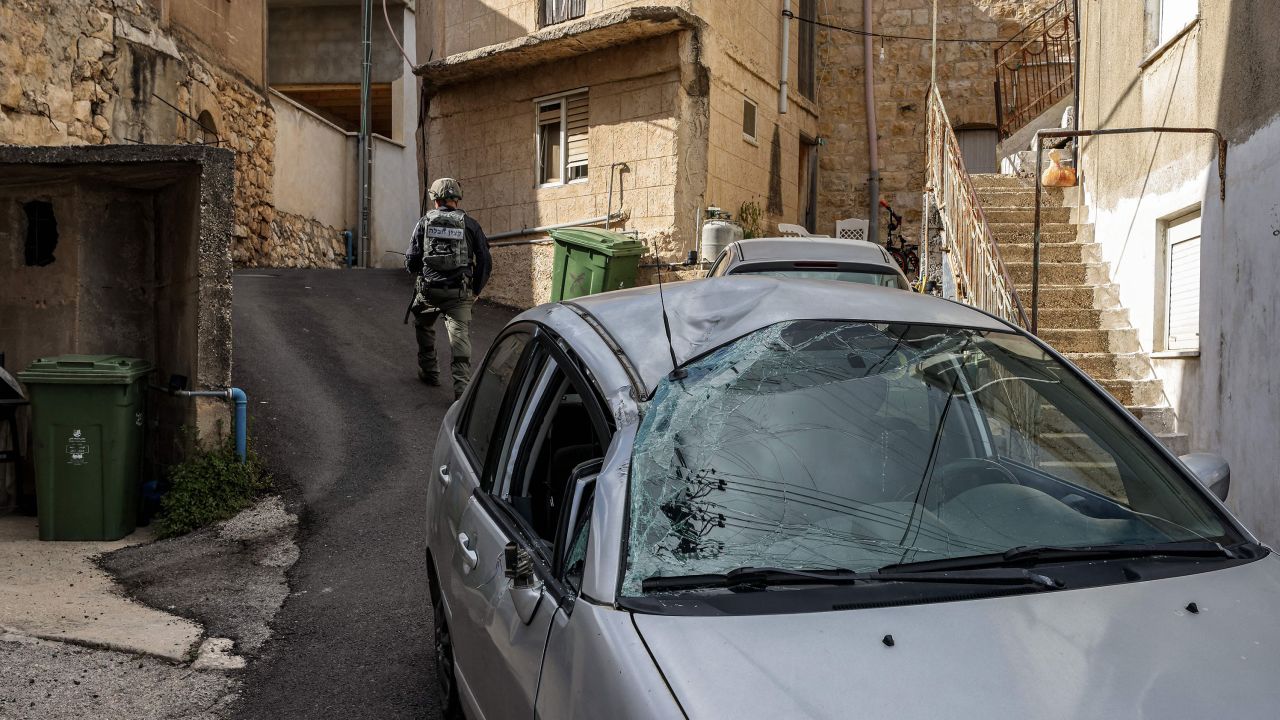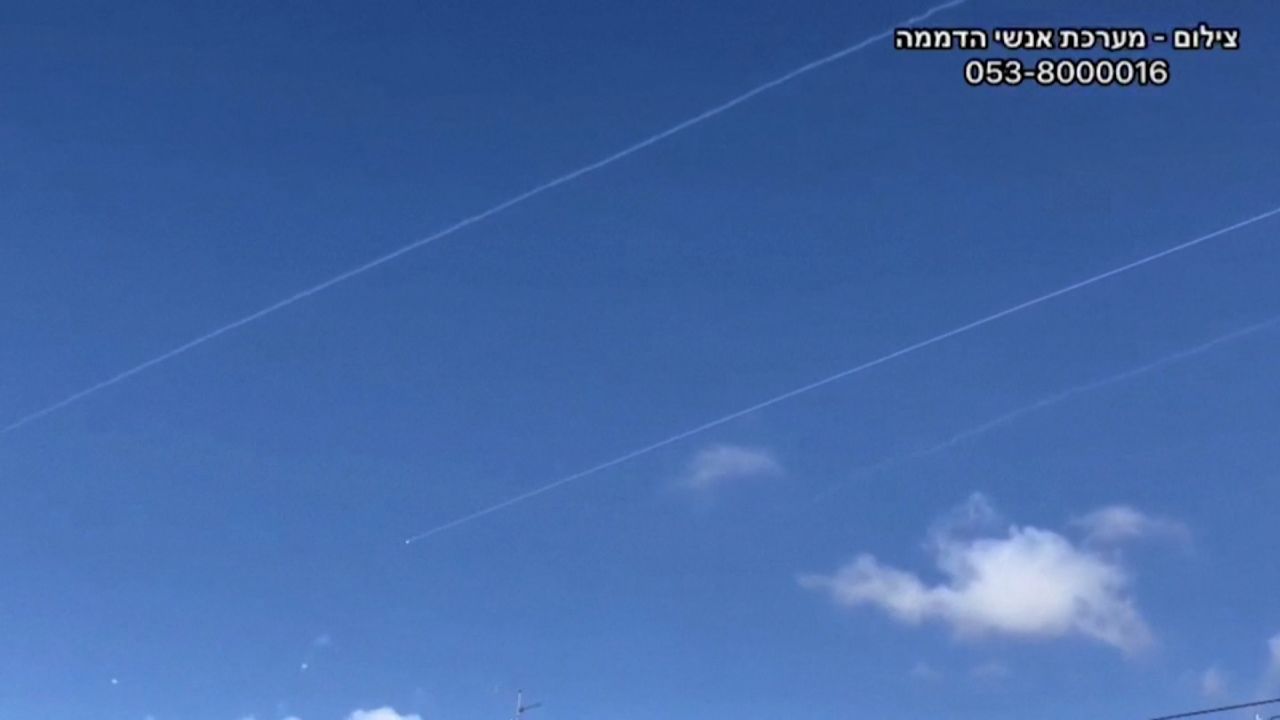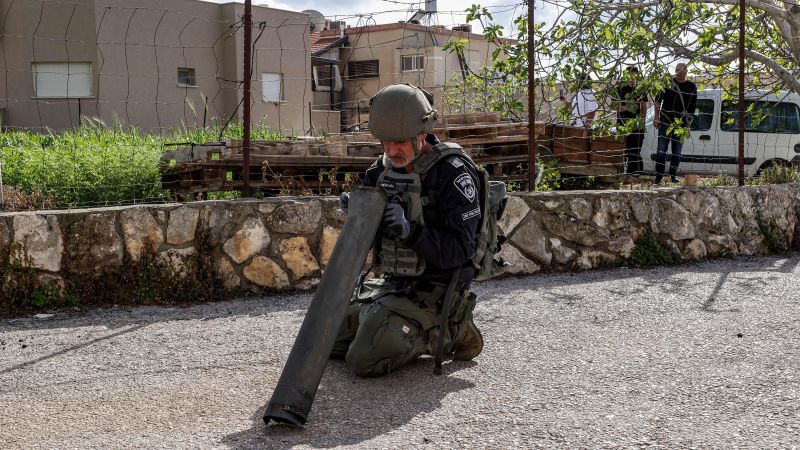Jerusalem
CNN
—
Dozens of rockets were fired from Lebanon into Israel on Thursday, the Israeli military said, in a major escalation that comes amid tensions over Israeli police raids at the al-Aqsa mosque in Jerusalem.
Some 34 rockets were launched from Lebanese territory into Israeli territory, the Israeli Defense Forces (IDF) said, with the majority intercepted but six landing in Israel.
It was the largest such attack since a 2006 war between the two countries left around 1,200 Lebanese people and 165 Israelis dead.
Israel said it would “decide on the place and time” of its response to a barrage of rockets, an IDF defense official told CNN.
The country closed its northern airspace in the wake of the barrage. No deaths were reported as of Thursday afternoon, and it is not yet known which group in Lebanon launched the rockets but the IDF has blamed the Palestinian militant group Hamas.
Videos posted on social media showed rockets streaking through the skies over northern Israel, and the sounds of explosions in the distance.
The Lebanese army told CNN it had no information to release publicly yet; the Lebanese militant group Hezbollah told CNN it would not comment at the moment.
The incident comes a day after the leader of Hamas, Ismail Haniyeh, arrived in Beirut for meetings with Hezbollah officials.
Tensions are sky-high in the region after Israeli police stormed the al-Aqsa mosque in Jerusalem on two separate occasions Wednesday, as Palestinian worshipers offered prayers during the holy month of Ramadan.
Footage from inside the mosque showed Israeli officers beating people with their batons and rifle-butts, then arresting hundreds of Palestinians. Israeli police said they entered the mosque after “hundreds of rioters” tried to barricade themselves inside.
The incident, which was met with widespread condemnation from the Arab and Muslim world, sparked retaliatory rocket fire from Gaza into Israel.
Jordan’s Foreign Minister Ayman Safadi told CNN “we are at a very dangerous moment.”
“What we see unfolding on the Lebanese border is obviously a consequence, a reaction to what we saw happening in al-Aqsa [mosque].” Safadi said.


There have been several small-scale rocket attacks from Lebanon in recent years that have prompted retaliatory strikes from Israel. Few casualties were reported in those incidents, with the largest death toll in an exchange of fire in 2015 that left two Israeli soldiers and a Spanish peacekeeper dead. Palestinian factions in Lebanon were believed to be behind those rocket attacks.
The 2006 conflict was the biggest flare-up between Lebanon and Israel since 1982. Around 1,200 Lebanese people and 165 Israelis died in an exchange of fire that involved a nationwide Israeli aerial assault, and a naval and aerial blockade. Hezbollah fired many rounds of rockets reaching deep into Israeli territory during the conflict.
The IDF defense official – who asked not to be named – told CNN Israel’s assumption was that Palestinian groups were behind the rocket attack, and that the IDF was “still figuring the whole dynamic of what happened this afternoon.”
The official added Israel had not fired artillery into southern Lebanon in response to the rockets, contradicting a report from the country’s National News Agency that Israeli shelling targeted the outskirts of Tyre.
The IDF has been concerned for some time about an escalation on the Lebanese border, and hosted a high-level seminar in the spring of 2022 to brief journalists and policy makers about it.
The UN peacekeeping mission in Lebanon (UNIFIL) said Thursday’s escalation of violence between Lebanon and Israel was “extremely serious.”
UNIFIL also said it has directed its personnel stationed at the border between the two countries to move to air raid shelters, as a “common practice.”
The White House said it was “extremely concerned by the continuing violence and we urge all sides to avoid further escalation.”




![NZ v AUS [W] 2024/25, New Zealand Women vs Australia Women 3rd ODI, Wellington Match Report, December 23, 2024](https://img1.hscicdn.com/image/upload/f_auto/lsci/db/PICTURES/CMS/393500/393523.6.jpg)


